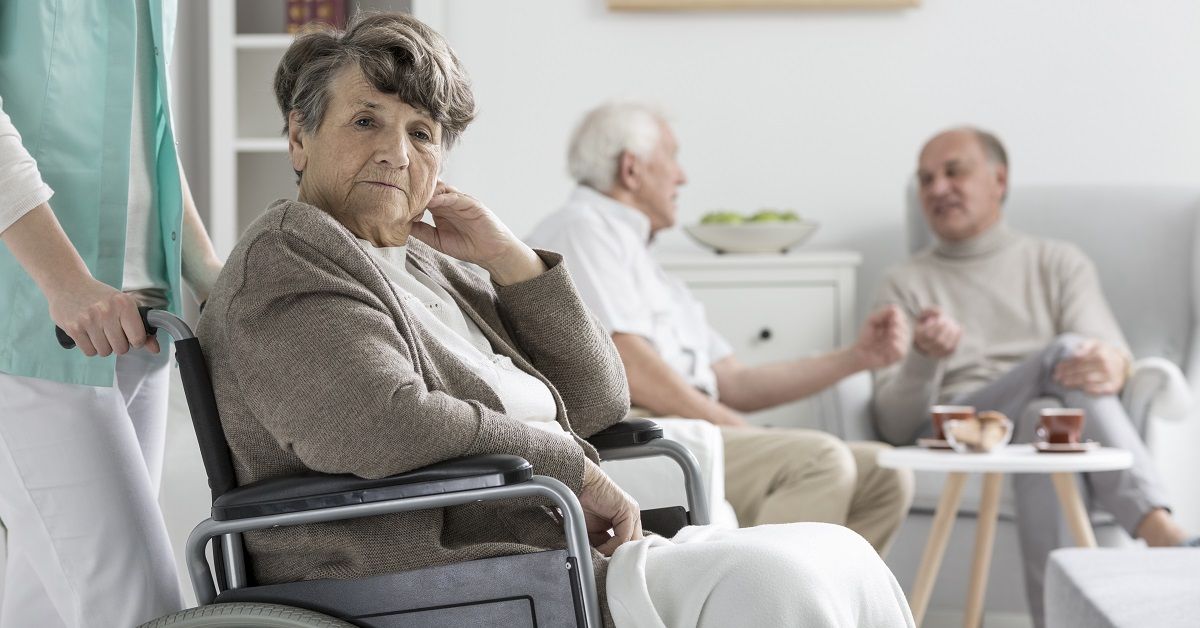
Many families struggle with the decision to place an elderly relative in a nursing home or other care facility. When you do, you expect that the staff will treat your elderly loved one with respect and put his or her safety first.
Unfortunately, residents of nursing homes are often victimized by the people who are supposed to care for them. Abuse and neglect generally take place when the resident’s loved ones are not around, causing them to suffer in silence.
For families who have relatives in nursing homes, vigilance is key. You may be able to identify nursing home abuse and neglect when you visit your loved one, but it is important to be able to recognize possible signs of mistreatment.
If you suspect that your loved one is being abused or neglected in a nursing home in Albany, Saratoga Springs, or elsewhere in the Capital District, please call Dreyer Boyajian LLP at (518) 463-7784 today. Your initial consultation is free, and our lawyers will take prompt action on your loved one’s behalf.
Abuse and neglect in nursing homes take a variety of forms. The abuse may be physical, emotional, sexual, or financial. Some signs of neglect are readily apparent, while others may require greater attention to detect.
Generally, the following signs may indicate that your relative is being abused or neglected in their nursing home:
Changes in behavior are not uncommon with age, especially among elders who suffer from dementia and other conditions that affect cognition and mood. However, if you start to notice a marked change in your loved one’s mental or emotional state after moving them into a nursing home, this could be indicative of neglect or abuse.
If your loved one seems agitated, distracted, worried, or aggressive, it might be a sign that they are being mistreated by staff at the facility. Social withdrawal – both from visiting loved ones and other residents at the facility – could also indicate that something is wrong.
As they get older, seniors may not be able to prepare their own meals or even feed themselves. In nursing homes, caregivers have a responsibility to ensure that residents get the nutrition they need.
Unfortunately, staff members may withhold meals because residents are “uncooperative” (a form of abuse). In instances of neglect, a resident’s meals may be skipped or not provide the necessary nutrition.
If your loved one is losing weight with no discernible cause, this could be a sign of abuse or neglect. The same is true if they appear dehydrated.
Also known as pressure ulcers, anyone who is confined to a bed for long periods of time is at risk of developing bed sores. To avoid bed sores, patients must be turned and repositioned regularly so pressure doesn’t build up on particular areas of the skin.
Bed sores are a common sign of nursing home neglect. If your loved one is bedridden or suffers from mobility issues, keep an eye out for red, irritated, or blistered skin, particularly in areas like the lower back and legs.
Physical signs of abuse may include:
If you notice any of these injuries, demand an explanation from the staff. If you are dissatisfied with what they tell you, you may want to consider moving your loved one out of the facility and contacting a nursing home abuse lawyer.
Physical injuries and signs of restraint may also be associated with nursing home sexual abuse and exploitation. Another possible sign that your loved one may be suffering sexual assault or abuse is a previously undiagnosed sexually transmitted disease.
When you visit your loved one, assess the cleanliness and comfort of the nursing home. Does it seem too hot or too cold for the weather conditions? Are the premises dilapidated and present hazards to the residents?
Also take note of your loved one’s personal hygiene and appearance. If they are unbathed and ungroomed, if their bedding is soiled, or if their room is in poor condition, these may all be signs of neglect.
Senior citizens are at a high risk of financial exploitation and abuse. In nursing homes, signs of financial abuse may include:
Identity theft and fraud may also occur in cases of nursing home financial abuse. If you or your loved one starts to receive letters from collection agencies for debts you were unaware of, this could be a sign that your relative’s personal information was stolen.
Supervision is key to the safety and well being of seniors with dementia. Unfortunately, whether due to the neglect of staff or insufficient measures at the facility, elderly nursing home residents may wander from the premises. Seniors who wander from the nursing home may suffer serious injury or worse.
One of the key duties of nursing home staff is to ensure that residents get the care they need. Depending on the facility, this may range from administering medications to providing skilled nursing and therapy.
If your loved one’s health declines after moving into a nursing home, this could be a sign of abuse or neglect. Also keep an eye out for a surplus of medication or running out of meds too early.
Nursing home residents do have the right to refuse visitors, including family members. However, if the nursing home tries to block you from seeing your loved one or staff members insist on staying in the room during your visit, these are both red flags.
Seniors deserve to live out their golden years with dignity and safety. Unfortunately, residents of nursing homes are too often subject to neglect and physical, mental, sexual, and financial abuse.
If you suspect that your loved one is the victim of nursing home abuse or neglect, contact Dreyer Boyajian LLP at (518) 463-7784 today for a free consultation. Our lawyers serve clients in Albany, Saratoga Springs, Troy, Schenectady, and nearby areas of New York.











